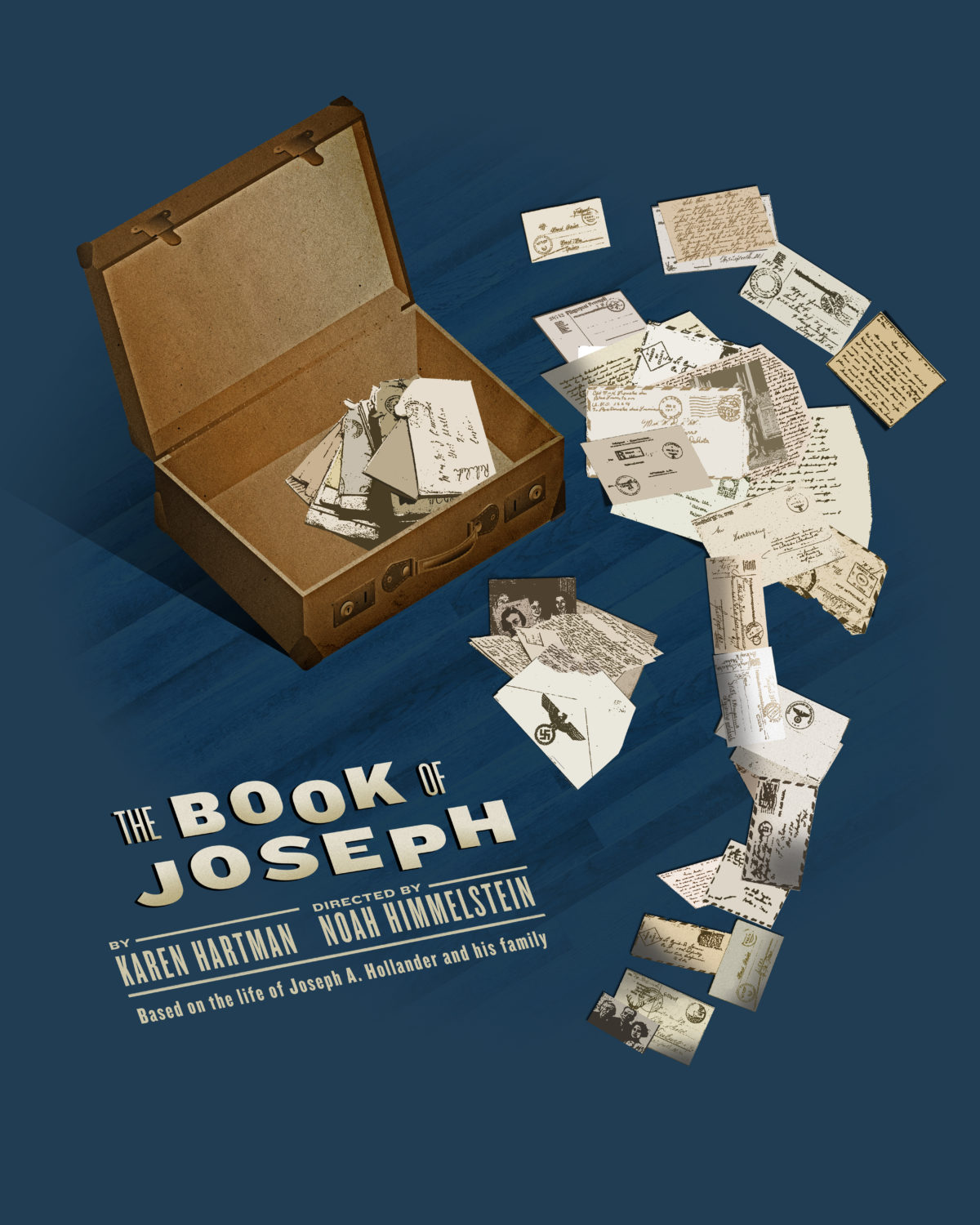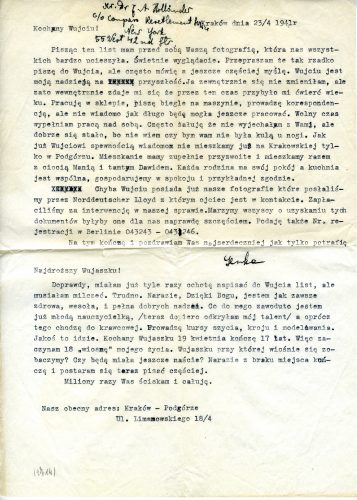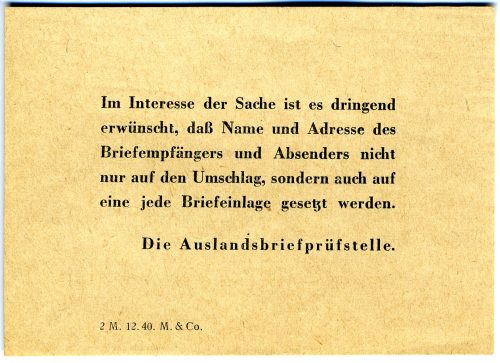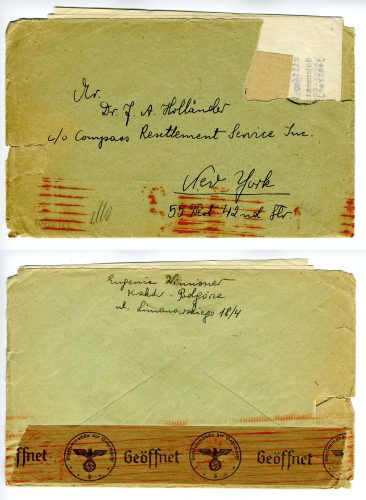The censors make their shadowy presence known

Curators have to make choices: not everything can make it into an exhibit, and there’s seldom enough space to share every interesting fact about the things that are on display. That’s where social media comes in! Here’s a closer look at another letter in the Hollander family collection. Written by JMM Director of Collections and Exhibits and The Book of Joseph: Giving Voice to the Hollander Family curator Joanna Church. To see more Book of Joseph extras, click here.
In this April 23, 1941 letter from Joseph’s nieces Genka (top portion) and Lusia (bottom portion), both girls described their circumstances in not-terribly-hopeful terms. Genka’s note was more despairing than her sister’s, telling her uncle “I didn’t change much outside but inside I feel like I am a quarter of a century older.” Even cheerful Lusia, after assuring Joseph she is “healthy, joyful and full of good hopes,” could only summarize the family’s overall situation with “it’s going somehow.”

Genka provided the Wimisner family’s Berlin registration numbers; at the bottom, one of the girls added their “current address,” now that they’ve moved to the Podgórze neighborhood… that is, the new Cracow ghetto; and, inside the envelope, added by a Nazi censor, is this small printed notice:

Die Auslandsbriefprüfstelle.
Translation:
In the interest of the matter at hand, it is strongly desired that the name and address of the recipient and sender be set not only on the envelope, but also on each letter enclosed.
The foreign letter inspection office.
The girls added their uncle’s address by hand to the top of the letter itself, as requested – probably doing this after the letter was returned to them for their failure to follow a rule of which they may have been unaware. The rules for letters changed frequently and arbitrarily, adding to the uncertainty of communication with the outside world.

The translation of this letter appears in Every Day Lasts a Year on pages 243-244.
On loan from Rich Hollander and his family, Baltimore. JMM L2018.003.014.045
